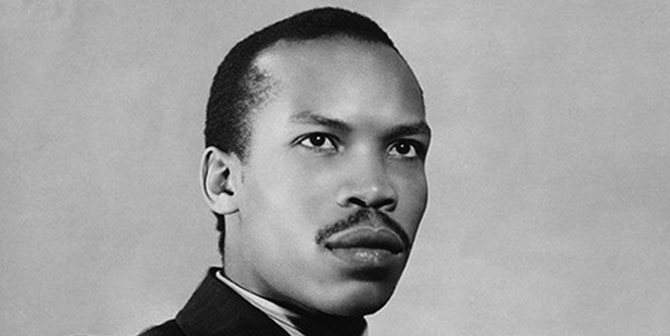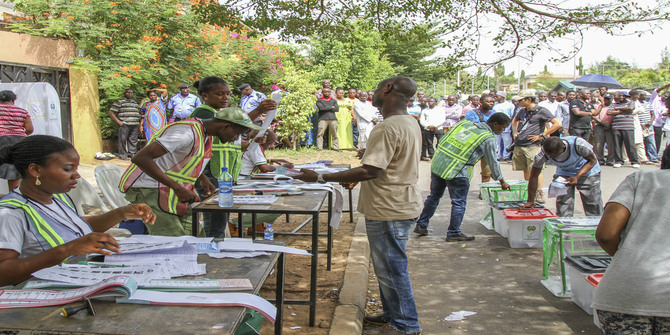Dr Stefan Lindemann is a recent LSE graduate and a research fellow at the Max Planck Institute for the Study of Religious and Ethnic Diversity. He was commissioned to conduct the research of the paper, Just Another Change of Guard? Broad-based Politics and Civil War in Museveni’s Uganda by the LSE-based Crisis States Research Centre programme and funded by the UK Department for International Development.
When Yoweri Museveni and his National Resistance Movement (NRM) took power in 1986, their key promise was to bring about a “fundamental change in the politics of our country” after the ethnic favouritism of previous governments.
Former President Milton Obote had favoured members of ethnic groups from Northern Uganda, the Langi and the Acholi, while Idi Amin mainly relied on a Nubian-Kakwa core group and Muslims.

The antidote, according to the NRM, was “to address Uganda’s legacy of sectarian exclusion and violence by forming a broad-based government”.
Yet, 25 years later, President Museveni boasts a mixed record with seven civil wars taking place on his watch and war-related deaths totalling half a million.
On the other hand, the level of civil war has clearly declined over time. By the early 2000s, six out of the seven insurgencies had come to an end.
In his paper, Dr Stefan Lindemann develops a theory which relates a country’s propensity for war or peace to the inclusiveness of its “elite bargain” which is defined as the distribution of positions of state power between members of contending social groups.
According to Dr Lindemann, there are two ideal types of elite bargains.
The first is inclusive where rulers provide representatives of competing social groups with balanced access to positions of state power. This is likely to favour civil war avoidance.
The exclusionary elite bargain is where rulers provide biased access to positions of state power which can be expected to favour civil war onset.
In the early days, the NRM’s leadership exhibited a strong ethnic bias in favour of western & central Uganda. This was because Museveni’s core group from Ankole in western Uganda had entered into a “Bantu” alliance with the Baganda during the anti-Obote war. As a result, it was widely viewed as the country’s first “southern government”. Despite the introduction of an anti-sectarian Law in 1988, the distribution of posts at the national level has remained skewed.
Most key positions in the inner core of political power have gone to Banyankole, Museveni’s group, while members of the Bakiga, Banyoro and Batoro have also been prominently represented.
The second main beneficiaries have been the Baganda, with clear over-representation since 1986. Their strong presence is a reward for support to the NRA during the anti-Obote war. However, there is a growing feeling of marginalisation among many Baganda.
They feel the positions of real power and influence are held by westerners. In addition, most of the Baganda minsters with prominent portfolios are at odds with the Kabaka (the Buganda King) which means that the views and interests of the Buganda Kingdom elite are hardly represented in government, despite still being very influential in Buganda.
In response to the unabated ethnic bias at the centre, Museveni’s Uganda witnessed a number of civil wars, which emerged among the excluded ethnic groups in the North. Three ethnically based rebellions started in Acholiland – the most marginalised ethnic group under Mr Museveni’s NRM.
There have also been revolts by the Iteso (who enjoyed a privileged position under former President Milton Obote) and West Nilers (allies of Idi Amin).
All these insurgencies have now come to a formal or informal end. The reason for this, argues Dr Lindemann, is the introduction of the Local Council (LC) system, which brought about increased territorial power sharing from the late-nineties.
As a result, members of all ethnic groups have had access to paid employment, political influence & government resources. Since jobs and resources are no longer exclusively controlled at the centre, the value of holding national power has declined – a powerful disincentive to existing and new rebellion.
The DP leader and 2011 Presidential candidate Norbert Mao is one example of someone who values regional power over a national position. He chose to resign from Parliament in 2006 to run for the position of Chairman in the Gulu district. Afterwards he said that he had been “tired of being a commentator in Kampala: in local government, you are in charge.”
However, Lindeman says that the link between decentralisation and conflict avoidance is not clear-cut. He questions whether the NRM’s decentralisation policy will ‘buy’ stability in the long run. In fact, there is already evidence that district creation has bred a number of local-level conflicts.
With the NRM still to deliver the promised “fundamental change” at the heart of government, some commentators worry that Mr Museveni is leading Uganda to “a terrible genocide”. However, others believe another civil war is unlikely.
While the 2011 elections were largely peaceful, the 2009 “Buganda riots” which involved sporadic violence against people believed to be Banyankole shows that there may yet be another twist in Uganda’s future.





